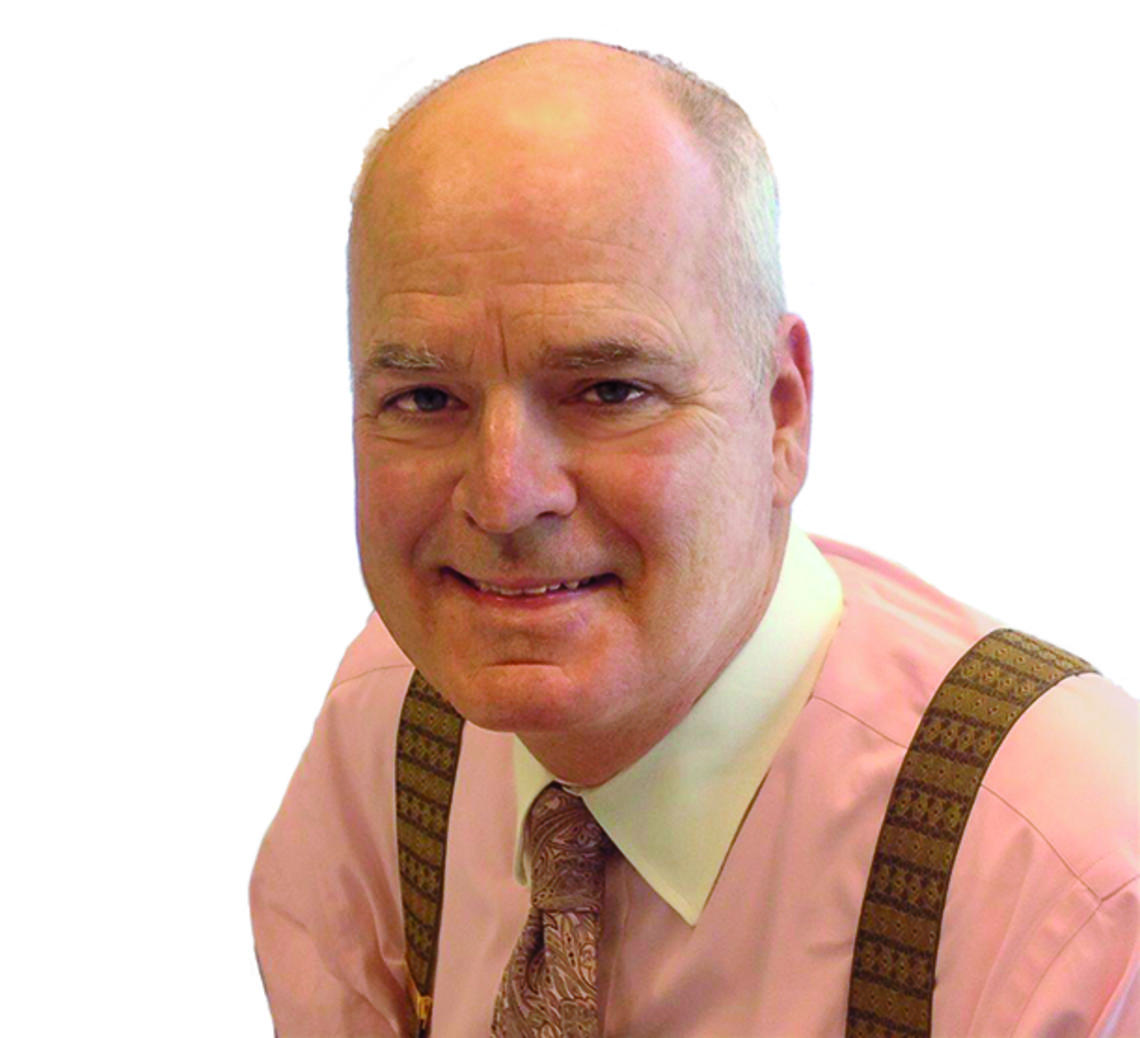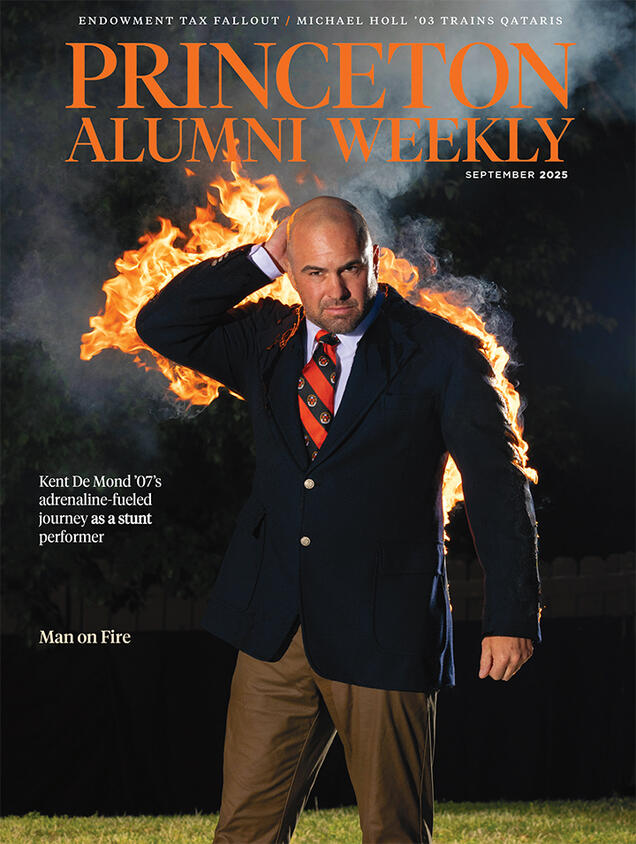
Adjusting to college life wasn’t easy for Norm Tabler ’66, a freshman from a small town in Indiana — and the shadow of the Cuban Missile Crisis added new anxieties.
PAW Tracks is also available on iTunes — click here to subscribe
TRANSCRIPT
In this episode of PAW Tracks, we look at nuclear war and midterm exams, two sources of anxiety that left a lasting mark on Princeton freshmen more than 50 years ago.
Norm Tabler, Class of 1966, left his hometown in southern Indiana to come to Princeton in the fall of 1962. College life was daunting, he says, academically and socially.
Norm Tabler: I come from a foolishly named town called Floyds Knobs, Indiana. I grew up on a small farm there. And I was a good student, and my brother observed to me that, in all the movies we watched, that guys that went to Ivy League schools got the girl. And I looked at college catalogues, and I was dazzled by the beauty of Princeton, and I was naïve enough to believe the brochure that said that, if I were admitted, that the University would make sure that I could afford to go there — which was a good thing, because it cost about half my father’s gross income to send a child to Princeton that year. I was admitted, I got financial aid of about half my father’s gross income, and I came here. But I had never been east of Indiana when I arrived at Princeton.
It was as beautiful as I expected it to be. I was terrified by the sophistication and the knowledge and the education of my classmates. I wasn’t used to that. I had been consistently told that I was the smartest little boy in my grade in Floyds Knobs; full disclosure, there were nine boys in my grade in Floyds Knobs. And I was — I found it daunting, and I would say, in a way, it was probably the most profound cultural shock of my life. I had never worn a shirt that my mother hadn’t made for me, I had never had a haircut my father didn’t give me, and I was taken aback and concerned. But with the resilience of a 17-year-old, I adapted, and soon I was just another Princeton snob, like everybody else.
Even as Tabler adjusted to life at Princeton, the specter of midterms loomed on the horizon. But that wasn’t the only thing on his mind. Here’s President John F. Kennedy addressing the nation on October 22, 1972.
John F. Kennedy: It shall be the policy of this nation to regard any nuclear missile launched from Cuba against any nation in the Western Hemisphere as an attack by the Soviet Union on the United States, requiring a full retaliatory response upon the Soviet Union.
NT: It’s really my most memorable experience, and I sort of think of it in my memory as nuclear war and midterm exams. I was walking across the campus to middle Dod Hall, where I resided, absolutely terrified because midterms were coming up. They would be my first exams at Princeton. In my early weeks, I had not done well, and I wasn’t used to not doing well — I had never made a B in high school. As I told you, I was regarded as the smartest little boy in my grade in Floyd Knobs, Indiana. But I was also aware, over the airwaves and in newspaper headlines all over the world — not just America but all over the world — America was facing the Cuban — what became known as the Cuban Missile Crisis. And I was not a news junkie at the time; I am now. I wasn’t at the time. I did — I read the New York Times hastily every day. I listened to rock ’n’ roll radio, and rock ’n’ roll radio every hour had news headlines. And nobody, nobody could escape knowing about what was going on in Cuba. I mean, it was everywhere. There — I can’t think of anything today that dominates the news so completely as that did. Sensitive, normal, ordinary people, sophisticated people as well, believed that there was a serious chance that the world might end. So my mind was burdened by these two threats, midterm exams and nuclear war. But as I thought about it, I wasn’t sure which I preferred, because there was some good to both of them. I mean, if we had nuclear war, and the world ended, then I would not have to take those midterm exams. So on reflection, I guess I thought that maybe nuclear war was preferable, because I couldn’t imagine that. On the other hand, I could imagine doing poorly on my midterm exams and having to face my family back in Floyds Knobs.
Well, this is sort of a spoiler alert, but it turned out that we did not have nuclear war.
Walter Cronkite: Good evening. This is Walter Cronkite at CBS News headquarters in New York. At its beginning, this day looked as though it might be one of armed conflict between Soviet vessels and American warships on the sea lanes leading to Cuba. But there has been no confrontation as far as we know, and some hope has been generated by suggestions of negotiation.
NT: At the time, and for years and years after that, we generally believed that Nikita Khrushchev had blinked and had cowered back to Moscow with his missiles. We found out later that in fact it was a mutual blink, and that Kennedy, unbeknownst to the public, had agreed to remove our missiles from Turkey. I did take midterm exams, and I did do poorly, as I had feared — not disastrously, but poorly. And that’s my most vivid memory.
Our thanks to Norm Tabler for sharing his story. Brett Tomlinson produced this episode. The music is licensed from FirstCom Music.
If you have a story you’d like to share, email us at paw@princeton.edu to set up an interview for PAW Tracks. We’d love to hear from you. Also, if you’re new to the podcast, please check out past episodes. If you’re listening on the PAW website, you can click the PAW Tracks hashtag at the bottom of the transcript. You can also listen to all 30 episodes on iTunes.
Paw in print

September 2025
Stuntman Kent De Mond ’07 is on fire; Endowment tax fallout; Pilot Michael Holl ’03 trains Qataris

No responses yet